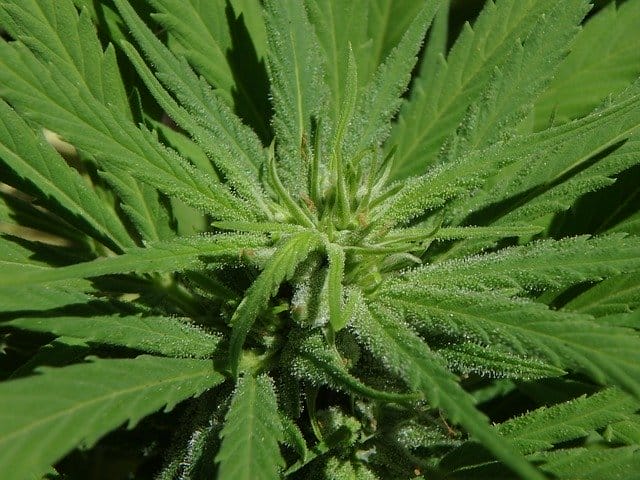Marijuana is ruling the world right now. Everyone is turning to medical marijuana for accessing its incredible therapeutic effects or just for using it for recreational purposes. But, can more than 3 million schizophrenia patients say the same? Can they consume marijuana for alleviating their host of symptoms like delusions, hallucinations, and troubled focusing? Well, as per the reports, marijuana in any form can be devastating for the patients or might worsen their symptoms.
Decoding The Risks Involved With Marijuana
Professors, scientists, and even some medical marijuana doctors agree to the preclinical studies pointing to the fact that there is a link between marijuana and patients with schizophrenia to tend to move towards psychosis. In short, marijuana can actually worsen the symptoms graph drastically. To understand it further, let’s go deep into an understanding of the term psychosis. It is precisely the inability of the patient’s brain to process the actual reality. The brain interception goes wholly awry and starts showing things that don’t mean anything in reality.
And if you add marijuana in this situation, things can go extremely out of order only because it contains THC that induces similar effects where you enter a world of euphoria. That’s why people are often concerned about psychotic properties whenever they are into consuming THC dominant products. The connection between cannabis and psychosis is often troubling. The risks involved were studied and published in a lot of research papers. Those papers state that using cannabis from an early age might induce the chances of developing psychosis. Other than that, a family history of child abuse or neglect might increase the chances of developing schizophrenia. And if you start using cannabis in such situations, you will find worsening of your symptoms. On the contrary, if you stop using cannabis will help to reduce mood disorders and anxiety conditions.
Modern Strains With Higher Potency Increase The Risks
Marijuana has evolved over the years. They are now available everywhere and that too with higher strengths than what you could find a few years ago. Marijuana today contains a higher percentage of THC. And that’s why one can believe the risk of psychosis has increased multiple folds as well. Plus, some compounds are mixed with other substances as well, which could trigger euphoria and hallucinations in patients with a history of schizophrenia.
But, still, such patients have a susceptibility to falling in the trap of cannabis all the time. The moment they start uncomfortable because of their condition, they wish to use marijuana as a reliever. Little they know, it heightens the current scenario by many folds. It’s like they say, “Oh! I am using it to reduce my anxiety or depressive feelings that are a byproduct of schizophrenia.” This makes a lot of patients at risk of the adverse effects that marijuana strains have.
Furthermore, medical marijuana is not regulated by the FDA in terms of potency and the amount of THC present in different strains. So, there is no guarantee of what you are actually getting into. THC has the risk of developing and accelerating the symptoms of psychosis. A study published in Schizophrenia Research stated that more than 40% of patients with schizophrenia were found to have cannabis use disorder as well. And that worsened the progression of the disease.
Are There Any Other Alternative Treatment Options Available?
Ok, THC is the bad person. But, is that all about cannabis? Definitely not. It has a good person too. And that name is cannabidiol. Also, popularly referred to as CBD. This cannabinoid has some amazing antipsychotic properties. And even a growing number of studies say that it improves a lot of clinical improvements with fewer or minimal side effects. Although one needs to confirm all these findings using more extensive clinical trials, the initial studies seem a lot promising. Some even say that CBD could be able to reduce the impaired brain functioning in schizophrenia patients. So, CBD could actually outweigh all the adverse effects of THC and actually be considered as a promising treatment option in such patients.
Key Takeaways
Medical marijuana is one of the best ways to reduce many symptoms in a host of medical conditions. For example, you can take it to alleviate conditions like anxiety, depression, digestive problems, women’s health issues, and even cancer. But, the fact that it could be potentially dangerous for schizophrenia patients needs to be addressed. Everything on this planet has good and bad effects, depending on the situation. And with cannabis, the bad comes out in the times when THC dominant strains start triggering negative effects in patients with already imbalanced neural structure.
On the contrary, if you start using the other cannabinoid in such situations, it might actually turn out to be useful in conditions where the patient is experiencing hallucinations or psychosis, especially when it has incredible antipsychotic and analgesic effects. If you are unable to decode your symptoms, it would be good to consult a doctor to see if you qualify for a medical marijuana card in California and find the right treatment for yourself. However, still, if you try and use cannabis and experience any type of negative effects, call your doctor immediately. Marijuana is an elixir molecule, but that effects are not limited to your medical condition. For you, it could turn out to be a havoc-creating stimulant. Consume and use marijuana wisely and look for alternative ways to lower down the frequency and severity of your symptoms effectively.

https://pixabay.com/photos/cannabis-flower-marijuana-bud-1610407/
The Editorial Team at Healthcare Business Today is made up of skilled healthcare writers and experts, led by our managing editor, Daniel Casciato, who has over 25 years of experience in healthcare writing. Since 1998, we have produced compelling and informative content for numerous publications, establishing ourselves as a trusted resource for health and wellness information. We offer readers access to fresh health, medicine, science, and technology developments and the latest in patient news, emphasizing how these developments affect our lives.







